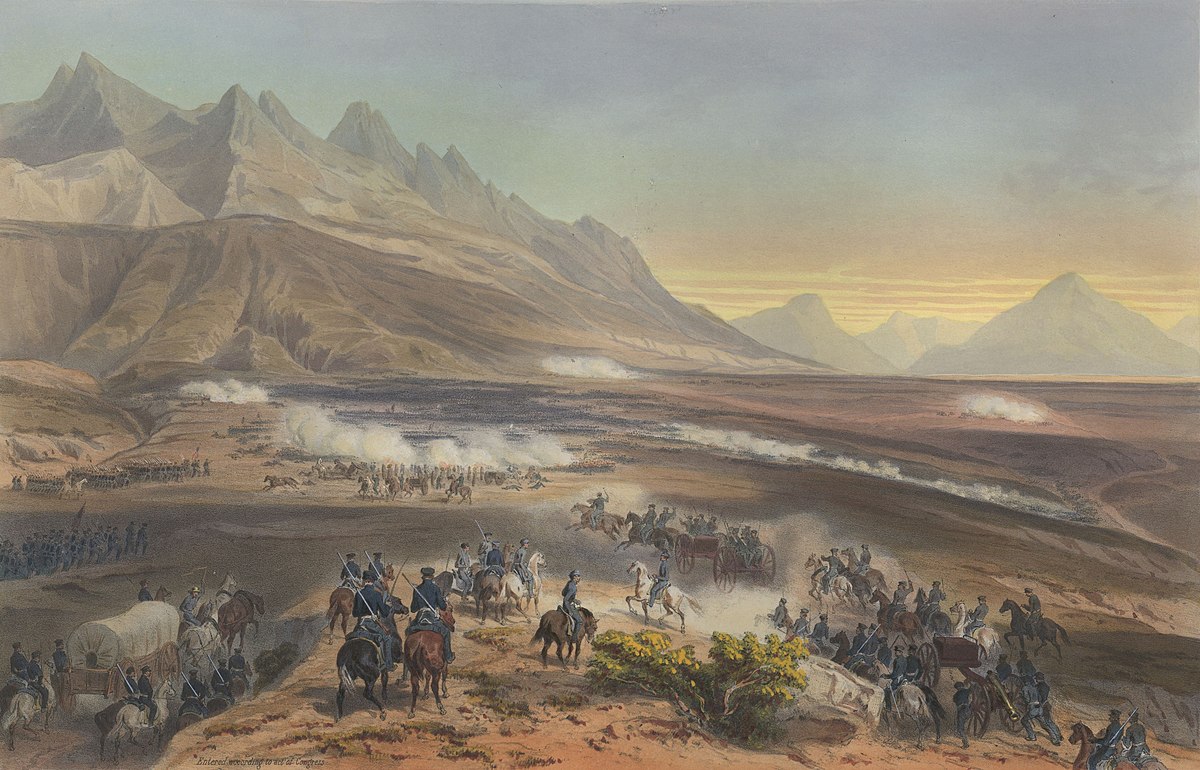
Battle of Buena Vista
Battle of Buena Vista monumentOn February 22, 1847, having heard of this weakness from the written orders found on an ambushed U.S. scout, Santa Anna seized the initiative and marched Mexico's entire army north to fight Taylor with 20,000 men, hoping to win a smashing victory before Scott could invade from the sea. The two armies met and fought the largest battle of the war at the Battle of Buena Vista. Taylor, with 4,600 men, had entrenched at a mountain pass called La Angostura, or "the narrows", several miles south of Buena Vista ranch. Santa Anna, having little logistics to supply his army, suffered desertions all the long march north and arrived with only 15,000 men in a tired state.
Having demanded and been refused the surrender of the U.S. Army, Santa Anna's army attacked the next morning, using a ruse in the battle with the U.S forces. Santa Anna flanked the U.S. positions by sending his cavalry and some of his infantry up the steep terrain that made up one side of the pass, while a division of infantry attacked frontally to distract and draw out the U.S. forces along the road leading to Buena Vista. Furious fighting ensued, during which the U.S. troops were nearly routed, but managed to cling to their entrenched position, thanks to the Mississippi Rifles, a volunteer regiment led by Jefferson Davis, who formed them into a defensive V formation. The Mexicans had nearly broken the American lines at several points, but their infantry columns, navigating the narrow pass, suffered heavily from the American horse artillery, which fired point-blank canister shots to break up the attacks.
Initial reports of the battle, as well as propaganda from the Santanistas, credited the victory to the Mexicans, much to the joy of the Mexican populace, but rather than attack the next day and finish the battle, Santa Anna retreated, losing men along the way, having heard word of rebellion and upheaval in Mexico City. Taylor was left in control of part of northern Mexico, and Santa Anna later faced criticism for his withdrawal. Mexican and American military historians alike agree that the U.S. Army could likely have been defeated if Santa Anna had fought the battle to its finish.
Ask Herodotus
HistoryMaps Shop

Heroes of the American Revolution Painting
Explore the rich history of the American Revolution through this captivating painting of the Continental Army. Perfect for history enthusiasts and art collectors, this piece brings to life the bravery and struggles of early American soldiers.








